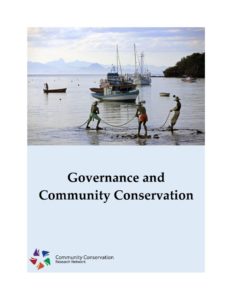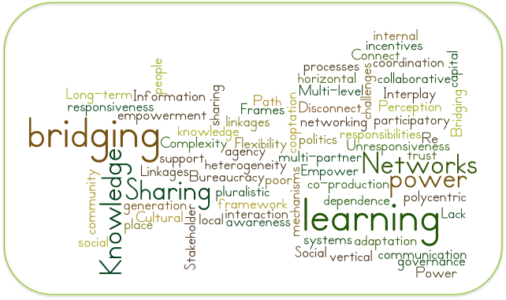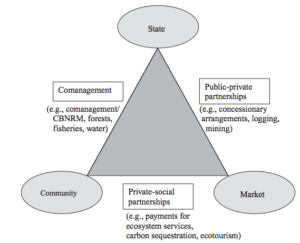Governance and Community Conservation

Click the above image to view and download the complete governance and community conservation guidebook as a PDF.
A key goal of the CCRN is to determine how the choice of governance arrangements can promote conservation that sustains communities and the ecosystem services upon which they depend. In this regard, we consider a number of related questions:
- How does one recognize and support effective and equitable local conservation initiatives/practices?
- To what extent are the interests of local resource users in conservation practices matched by meaningful involvement in decision‐making processes?
- How can governance arrangements deal with the reality that household and community livelihoods are often based on portfolios of multiple resources, while individual resources are managed in silos constrained by institutional structures?
- To what extent are the governance processes emerging in complex conservation situations adaptive to social‐ecological change and uncertainty?
This guidebook does not seek to answer all of these questions, but rather to focus on certain key ‘ingredients’ of governance arrangements that seem to work to promote conservation objectives while achieving a fundamental balance between food and livelihood needs and ecosystems. We draw on the experiences and outcomes from CCRN researchers and research sites around the world to generate broad insights into governance for community conservation. In this way, we hope to produce a better understanding of what governance means, what challenges it faces, and how we can support more effective governance arrangements in the CCRN context and beyond.
Check out our guidebook on Social-Ecological Systems




